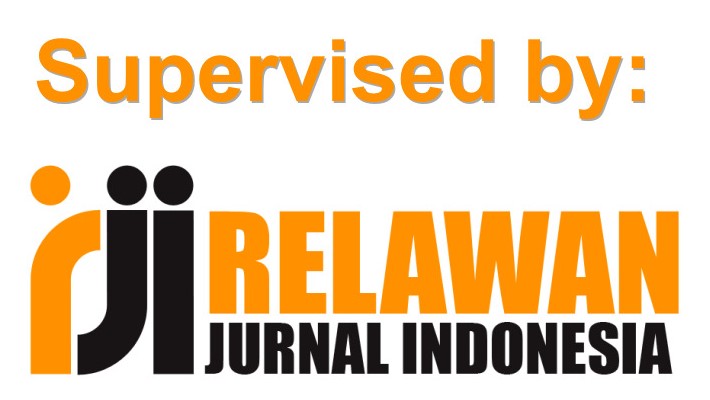PKM Pemberdayaan Masyarakat Dalam Pencegahan Stigma Kusta
DOI:
https://doi.org/10.31100/matappa.v5i2.1609Keywords:
Health Promotion, Leprosy, Stigma, PKMAbstract
References
Abeje, T. et al. (2016) ‘Performance of general health workers in leprosy control activities at public health facilities in Amhara and Oromia States, Ethiopia’, BMC Health Services Research. BMC Health Services Research, 16(1), pp. 1–7. doi: 10.1186/s12913-016-1329-2.
Astutik, E. & Gayatri, D. (2018) ‘Perceived Stigma in People Affected by Leprosy in Leprosy Village of Sinatala, Tangerang District, Banten Province, Indonesia’, Kesmas: National Public Health Journal, 12(4), p. 187. doi: 10.21109/kesmas.v12i4.1756.
Bujawati, E., & Alam, A. S. (2016). Gambaran Persepsi Pasien Tentang Penyakit Kusta dan Dukungan Keluarga Pada Pasien Kusta di RS . Dr . Tadjuddin Chalid Makassar Tahun 2015, 8, 29–38.
Damyanov, I., & Nikolay T. (2018). The role of infographics for the development of skills for cognitive modeling in education. International Journal of Emerging Technologies in Learning.
Dako-Gyeke, M. (2018). 'Courtesy stigma: A concealed consternagion among caregivers of people affected by leprosy', Social Science and Medicine, 196(November 2017), pp. 190-196. doi: 10.1016/j.socsimed.2017.11.030.
Depkes RI. (2005). Direktorat Jenderal Pemberantasan Penyakit Menular dan Penyehatan Lingkungan. Pedoman Nasional Pemberantasan Penyakit Kusta. Cetakan XVII.
Dinkes Jawa Barat. (2020). Profil Kesheatan Jawa Barat Tahun 2019. http://www.diskes.jabarprov.go.id
Dinkes Kota Depok. (2020). Profil Kesehatan Kota Depok 2019. In Dinkes Kota Depok (2020th ed.). http://dinkes.depok.go.id/
Dinkes Kota Depok. (2018). Profil Kesehatan Kota Depok Tahun 2017. Depok, Jawa barat.
Efka, G., Wibriani, P., & Kristiana, I. F. (2017). BERI AKU KESEMPATAN Studi Fenomenologis Pengalaman Penyesuaian Diri pada Penderita Kusta setelah Kembali ke Lingkungan Masyarakat, 6(1), 181–185.
Fiana, F. N. (2011). EFEKTIVITAS METODE PEMERIKSAAN KONTAK PEMERIKSAAN KONTAK OLEH KADER KESEHATAN TERHADAP JUMLAH PENEMUAN PENDERITA KUSTA BARU DI KECAMATAN SARANG KABUPATEN KABUPATEN REMBANG TAHUN 2010. Ilmu, Jurusan Masyarakat, Kesehatan Keolahragaan, Fakultas Ilmu Semarang, Universitas Negeri.
Fitriani, S. (2011). Promosi Kesehatan. Yogyakarta: Graha Ilmu.
Hidayah, E. N., Ginandjar, P., Martini, M., & Udiyono, A. (2019). Hubungan Tingkat Pengetahuan, Sikap Dan Tingkat Dukungan Keluarga Dengan Praktik Perawatan Diri Pada Penderita Kusta Di Kota Semarang. Jurnal Kesehatan Masyarakat (e-Journal), 8(1), 191–198.
Indanah. (2003). Dukungan Keluarga Berhubungan dengan Kecacatan Penderita Kusta.
Kemenkes RI. (2012). Pedoman Nasional Program Pengendalian Kusta. Jakarta: Direktorat Jenderal Pengendalian Penyakit dan Penyehatan Lingkungan.
Kotler, P., Nancy L. (2019). Social Marketing: Behavior Change for Social Good 6th Edition. SAGE Publication.
Marahatta SB, Amatya R, Adhikari S, Giri D, & Lama S, Kaehler N, et al. (2018) Perceived stigma of leprosy among community members and health care providers in Lalitpur district of Nepal: A qualitative study. PLoS ONE 13(12): e0209676. https://doi.org/10.1371/journal.pone.0209676
Newsom, D., & Haynes, J. (2004). Public Relations Writing: Form and Style, Nelson Education, Ltd, Canada.
Noratikasari, P. D., Ariyanto, Y., & Ririanty, M. (2020). Peran Kelompok Perawatan Diri (KPD) dalam Upaya Mencegah Peningkatan Kecacatan pada Penderita Kusta. Jurnal Promosi Kesehatan Indonesia, 15(1), 22. https://doi.org/10.14710/jpki.15.1.22-30
Notoatmodjo, S. (2012). Promosi Kesehatan dan Perilaku Kesehatan. Jakarta: Rineka Cipta.
Pudjiastuti, W. (2016). Social Marketing: Strategi Jitu mengatasi masalah sosial di Indonesia. Yayasan Pustaka Obor Indonesia.
Ratnawati, S & Umyati, S. (2019). Pemberdayaan Mantan Penderita Kusta Berbasis Kearifan Lokal Sebayai Upaya Pengentasan Kemiskinan. Wacana Publik, 13(2), pp. 79-85. DOI: https://doi.org/10.37295/wp.v13i02.35
Rinaldi (2010) ‘Resiliensi pada masyarakat kota padang ditinjau dari jenis kelamin’, pp. 99–105.
Rinayati, Erawati, A. D., & Wahyuning, S. (2020). Gambaran tingkat pengetahuan dan kinerja kader kesehatan. Jurnal Ilmiah Permas: Jurnal Ilmiah STIKES Kendal, 10(3), 359–364.
Safira, N. F, Widodo, A., Wibowo, D. A., Budiastuti, A. (2020). Faktor Risiko Penderita Kusta Tipe Multibasiler Di Rsud Tugurejo Semarang. Diponegoro Medical Journal (Jurnal Kedokteran Diponegoro), 9(2), 201–207.
Safitri, N. R., & Fitranti, D. Y. (2016). Pengaruh Edukasi Gizi dengan Ceramah dan Booklet terhadap Peningkatan Pengetahuan dan Sikap Gizi Remaja Overweight. Journal of Nutrition College. 2016, 5 (4).
Sari, I. P. (2016). Pengaruh Pendidikan Kesehatan Tentang Menstruasi Terhadap Perubahan Perilaku Menstrual Hygiene Remaja Putri untuk Pencegahan Infeksi Saluran Reproduksi (ISR). Bimiki I. 2013;2(1):11-18.
Sermrittong, S. & Van Brakel, W. H. (2014). 'Stigma in leprosy: concepts, causes, and determinants', Leprosy review, 85(1), pp.36-47. available at: http://www.ncbi.nlm.nih.gov/pubmed/24974441.
Septiawan, L. F., Mulyani, S. and Susanti, D. A. (2018) ‘Stigma patient leader in sumberarum village district dander district bojonegoro year 2017’, 8(2), pp. 27–32. Available at: http://ejournal.rajekwesi.ac.id/index.php/jurnal-penelitiankesehatan/article/download/173/134.
Setiani, Y. D. (2020). Efektifitas Promosi Kesehatan Media Video dan Leaflet terhadap Tingkat Pengetahuan tentang Pencegahan Osteoporosis. Jurnal Kesehatan Holistic Volume 4 Nomor 2 Juli 2020.
Sima, B. T., Belachew, T. & Abebe, F. (2019) ‘Health care providers ’ knowledge , attitude and perceived stigma regarding tuberculosis in a pastoralist community in Ethiopia : a cross-sectional study’. BMC Health
Services Research, 1, pp. 1–11.
Singh, R., Singh, B., & Mahato, S. (2019). Community knowledge, attitude, and perceived stigma of leprosy amongst community members living in Dhanusha and Parsa districts of Southern Central Nepal. PLoS Neglected Tropical Diseases, 13(1), 1–19. https://doi.org/10.1371/journal.pntd.0007075
Siregar, T., & Ratnawati, D. (2017). Pengalaman Keluarga Merawat Penderita Kusta dalam Menghadapi Stigma Masyarakat di Lelurahan Limo Depok - Jawa Barat, JIK1(2), 65–84.
Siregar, T. & Ratnawati, D. (2018). Faktor-Faktor Perilaku Sehat Penderita Kusta Terhadap Kepatuhan Konsumsi MDT di Wilayah Kerja Puskesmas Depok Jawa Barat. Jakarta: Proses Reiview Jurnal Care.
Subuh, M., et. all. (2015). Rencana aksi program pengendalian penyakit dan penyehatan lingkungan tahun 2015-2019. Jakarta: Direktorat Jenderal Pengendalian Penyakit dan Penyehatan Lingkungan. Available from: http://www/depkes.go.id/resources/download/RAP%2520Unit%2520Utama%25202015-2019/5.%2520Ditjen%[email protected]
Tarnoto, K. W., & Sahar, J. (2020). Strategi Mengurangi Stigma Penyakit Kusta di Komunitas. Interest : Jurnal Ilmu Kesehatan, 9(1), 6–15. https://doi.org/10.37341/interest.v9i1.182
Venus, A. (2004). Manajemen Kampanye: Panduan Teoritis dan Praktis dalam Mengefektifkan Kampanye Komunikasi. Bandung : Simbiosa Rekatama Media.
WHO. (2020). Social Stigma associated with COVID-19: A guide to preventing and addressing. Available at: https://www.who.int/docs/default-source/coronaviruse/covid19-stigmaguide.pdf.
Yunistasari, N. D. (2019). PERAN PETUGAS KESEHATAN TERHADAP IMPLEMENTASI METODE ICF (INTENSIFIED CASE FINDING) DALAM PROGRAM PENGENDALIAN PENYAKIT KUSTA DI KABUPATEN JEMBER TAHUN 2018. BAGIAN ADMINISTRASI DAN KEBIJAKAN KESEHATAN FAKULTAS KESEHATAN MASYARAKAT UNIVERSITAS JEMBER.
Zewdu, A. (2018) ‘Knowledge, Belief and Attitude of the Community towards Leprosy Patients in Gindeberet Woreda, West Shewa Zone’, Nursing & Healthcare International Journal, 2(4), pp. 1–16. doi: 10.23880/nhij16000156
Downloads
Published
Issue
Section
Citation Check
License
Jurnal ini memberikan akses terbuka langsung dengan prinsip bahwa membuat penelitian tersedia secara bebas untuk publik mendukung pertukaran pengetahuan global yang lebih besar.
Semua artikel yang diterbitkan dapat di Akses secara Terbuka atau Gratis untuk semua orang baik untuk dibaca maupun diunduh di bawah lisensi CC-BY.
Ppenulis mempertahankan kepemilikan hak cipta untuk artikel mereka, tetapi penulis memberikan izin kepada orang lain untuk menggunakan konten publikasi di Matappa secara keseluruhan atau sebagian asalkan karya aslinya dikutip dengan benar.
Hak cipta mencakup hak eksklusif untuk mereproduksi dan menyampaikan artikel dalam semua bentuk dan media, termasuk cetak ulang, foto, mikrofilm dan reproduksi serupa lainnya, serta terjemahan. Reproduksi bagian manapun dari jurnal ini, penyimpanannya dalam basis data dan transmisi dengan bentuk atau media apa pun, seperti elektronik, salinan elektrostatik dan mekanik, fotokopi, rekaman, media magnetik.

MATAPPA is licensed under a Creative Commons Attribution 4.0 International License.








